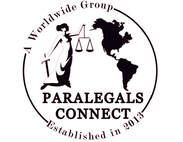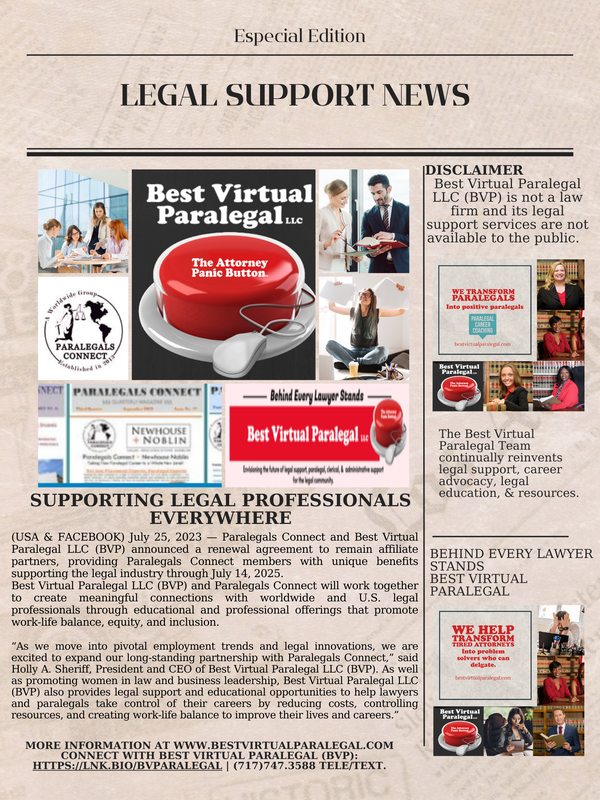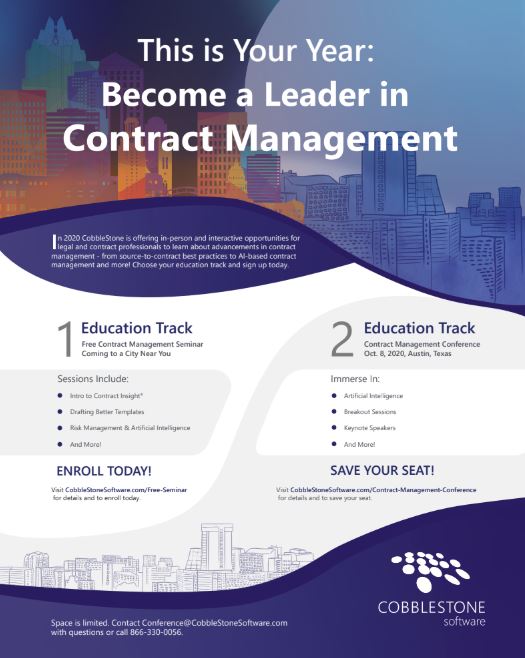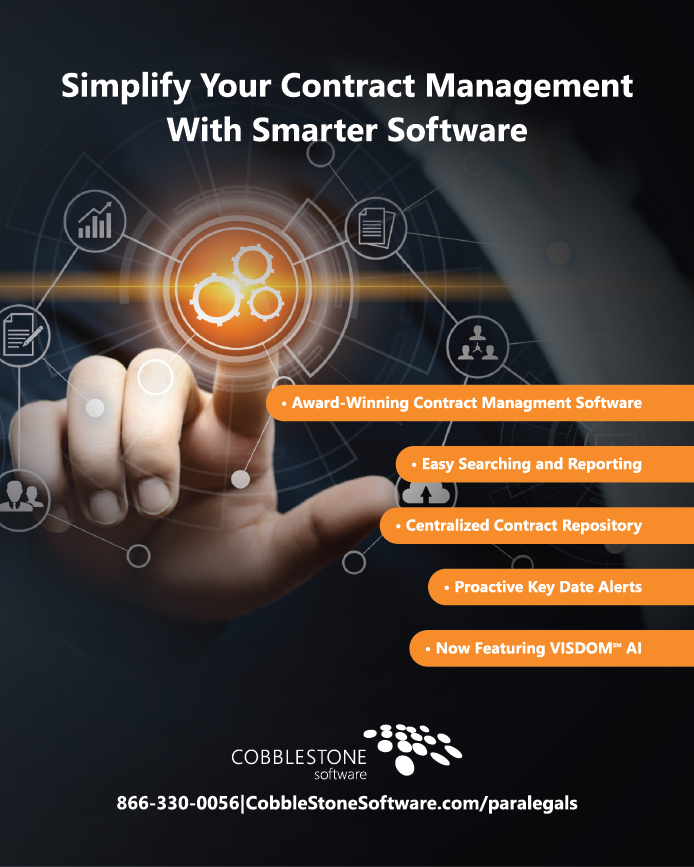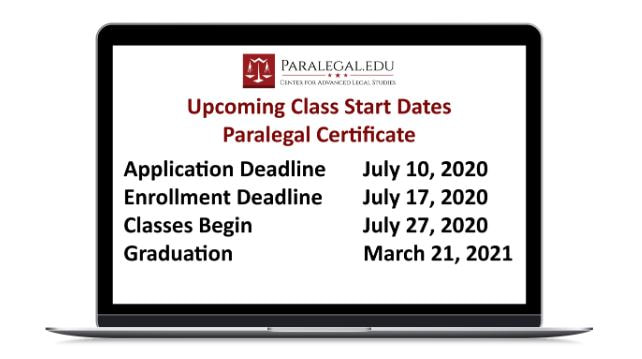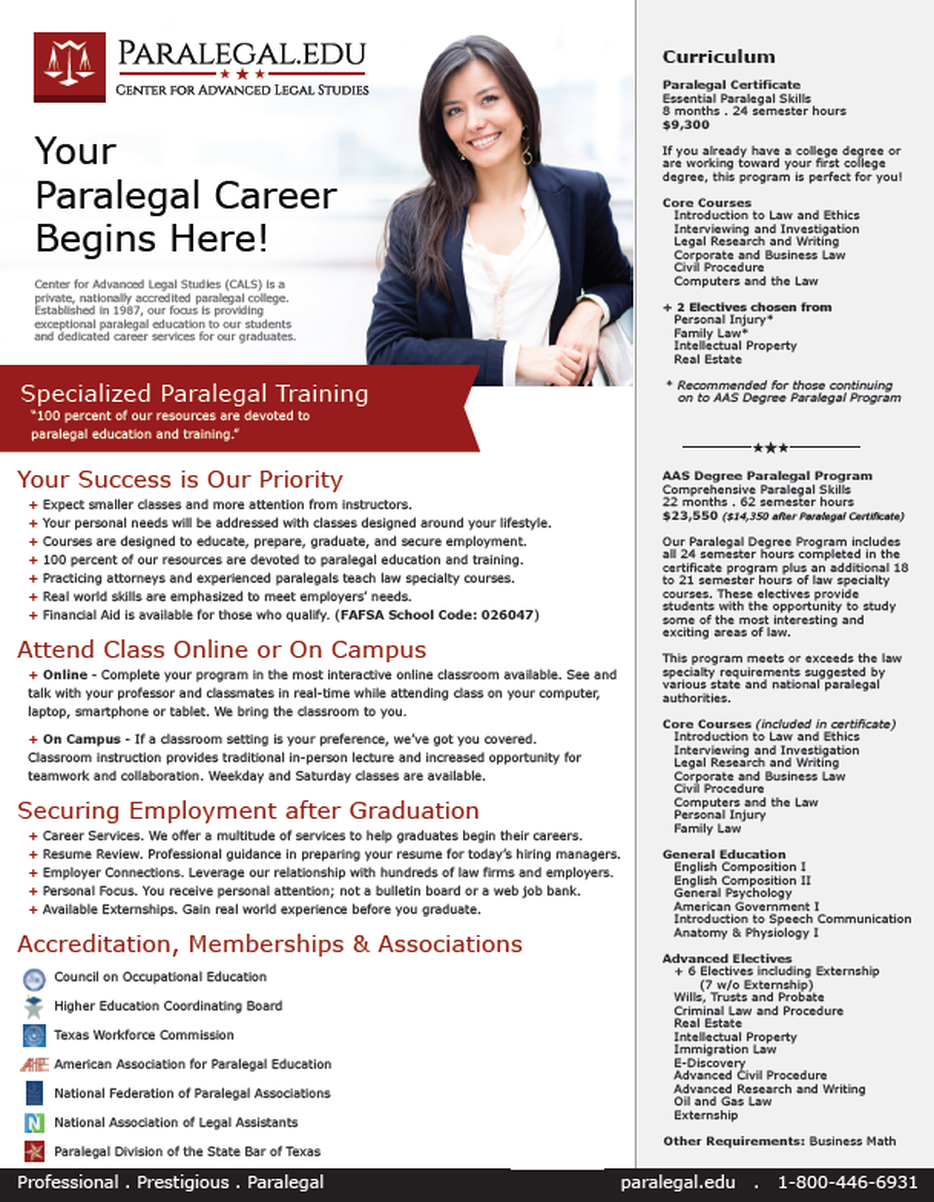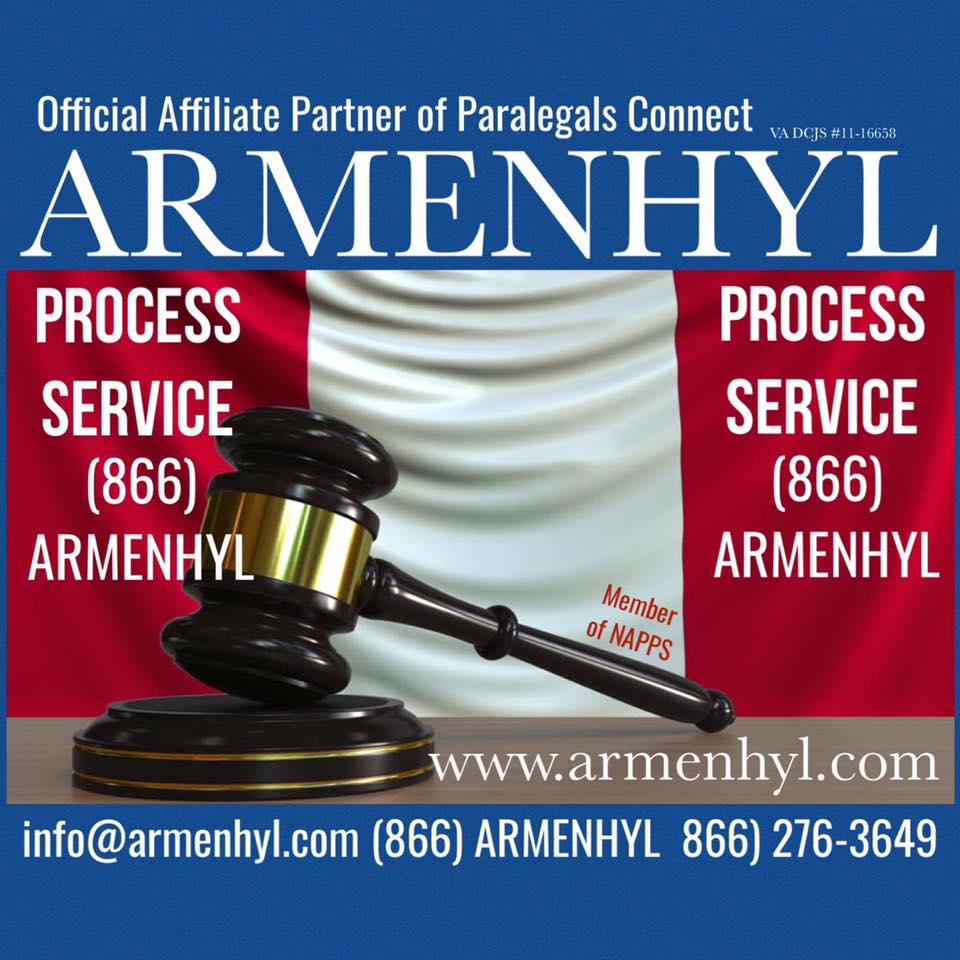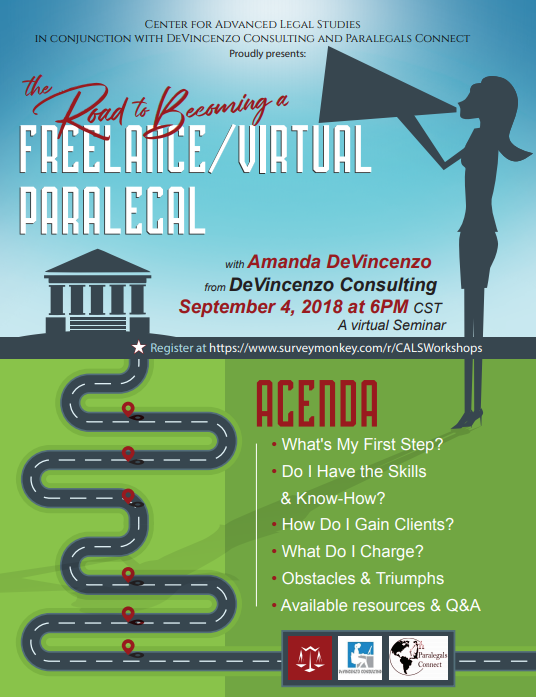Paralegals Connect and Best Virtual Paralegal LLC (BVP) announce a Multi-Year Partnership!
8/15/2023
Paralegals Connect and Best Virtual Paralegal LLC (BVP) announced a renewal agreement to remain affiliate partners, providing Paralegals Connect members with unique benefits supporting the legal industry through July 14, 2025.
Best Virtual Paralegal LLC (BVP) and Paralegals Connect will work together to create meaningful connections with worldwide and U.S. legal professionals through educational and professional offerings that promote work-life balance, equity, and inclusion. Supporting Legal Professionals Everywhere “As we move into pivotal employment trends and legal innovations, we are excited to expand our long-standing partnership with Paralegals Connect,” said Holly A. Sheriff, President, and CEO of Best Virtual Paralegal LLC (BVP). As well as promoting women in law and business leadership, Best Virtual Paralegal LLC (BVP) also provides legal support and educational opportunities to help lawyers and paralegals take control of their careers by reducing costs, controlling resources, and creating work-life balance to improve their lives and careers.” Paralegals Connect and the Best Virtual Paralegal Team continue to evolve their partnership to bring members of both organizations legal support offerings, quality legal education, cyber education, access to unique talent acquisition, and hiring strategies from the perspective of employees, employers, recruiters, and more. Best Virtual Paralegal LLC (BVP) is committed to solving professionals’ problems by providing the best legal support services, legal admin services, consulting, coaching, and educational services aimed at improve productivity, maximum resources, and control expenses to empower today’s legal professionals to design a career and lifestyle that continuously grows at a sustainable rate to help legal professionals succeed in their legal industry journey. The Best Virtual Paralegal team are legal support experts at empowering attorneys and paralegals to be the best at what they do! Connect with Best Virtual Paralegal (BVP): (717) 747-3588 Telephone / Text Messages | (717) 748-9873 Business Line Email: [email protected] For more information, visit our main site: https://www.bestvirtualparalegal.com Links: https://lnk.bio/Bvparalegal | Biz card: https://hihello.me/hi/bvp Schedule an appointment: https://bvparalegal.as.me/HollySheriff Facebook: @bvparalegal Twitter: @bvparalegal Instagram:@bvparalegal LinkedIn: www.linkedin.com/in/bvparalegal LinkedIn Company: https://www.linkedin.com/company/bvparalegal
0 Comments
I have been a Traditional Commissioned Notary Public in the State of Texas since 2004. I have heard about the ability to notarize documents online since the start of the Pandemic. However, I never spent the time to research how to become an online notary (sometimes call a “remote online notary” or “RON”), until now. I’ve seen so many posts in Paralegals Connect asking which RON Platform is recommended and have always been curious about this process and the platform. For those of you wanting to incorporate online notarization into your workflow and/or choosing a RON Platform, I’m hoping that this article helps you learn, through my experience, how to become an online notary, answers your important questions, and assists you in making your platform decision. Fortunately, my RON Platform provider had a “turnkey” service walking me through each step including, platform training, discussion of the rules and requirements, and assisted in creating the digital certificate and electronic seal. *The steps and requirements discussed in this article pertain to notaries and online notaries in Texas. The requirements in other states will vary, so consult the Secretary of State, or regulating agency in your state, which will usually provide the requirements for becoming a RON. Steps to Become a Remote Online Notary Step 1: You must first be an active commissioned Traditional Notary Public. With your active traditional commission, you may apply to be commissioned as an Online Notary Public, but you will need a few things discussed below in Step 2. Step 2: First, you will need a x.509 Digital Certificate. The digital certificate, also known as a digital signature, will be registered to you as a RON and will be filed with the Secretary of State, and is valid for two (2) years. The x.509 Digital Certificate will be your electronic signature in every online notarization you perform and must be dedicated solely for your online notarizations and no other purpose and must be x.509 compliant. What does a x.509 Digital Certificate do? I’ll try to explain this in nontechnical language as it was explained to me. When you place your x.509 Digital “tamper evident” Certificate on an electronic notarized document, it will take a “snapshot” of that document on a given date and time, it will contain your information as the RON, and it will reflect if the document is the exact same document, or if the document has changed or been tampered with since the certificate was applied. Second, you will need your online Electronic Notary Seal (Notary Stamp). This is an image file that looks exactly like your “ink stamp” notary seal. This electronic seal will need to be renewed when your traditional notary commission is renewed. Step 3: You will apply online for your Online Notary Commission on the Secretary of State website, upload your x.509 Digital Certificate, and Electronic Notary Seal, and pay an application fee via credit card to the Secretary of State. Once you are commissioned and sworn in you will need a RON Platform to perform online notarizations. What is a RON Platform? A Remote Online Notary Platform (“RON Platform”) is a secure online software platform wherein you will meet with your clients or other signing party remotely, identify them, administer an oath, if need be, complete affidavits, verifications, acknowledgments, or other notarial acts, and notarize their electronic documents. This is all done through a secure video conference, which will be recorded by and stored on the RON Platform service provider. Recommended RON Platform: Notary.io So, who do I recommend using for your RON Platform? I would absolutely recommend Notary.io! While researching RON Platforms, I came across Notary.io. I asked them to be an Affiliate Partner with Paralegals Connect since I was impressed with their platform, quality of training, and services. Notary.io went above and beyond and gave me pointers on how to efficiently and effectively complete electronic online notarized documents. Reasons to use Notary.io Reason 1: Assistance throughout the Traditional and/or Online Notary Commission Process. During your online training session, Notary.io will walk you and/or your notary staff through the online application process with the Texas Secretary of State. Notary.io provides professional training on Texas online notary rules and requirements to get you quickly up and running as an online notary. Reason 2: Notary.io creates your x.509 Digital Certificate and Online Electronic Notary Seal. Before my training, Notary.io requested that I email the following:
Notary.io then creates the x.509 Digital Certificate and Electronic Notary Seal for you and your team! Reason 3: Notary.io provides Professional Training on how to use the Notary.io Platform. Reason 4: No Recurring Fees. There are no reoccurring annual or monthly software/platform fees, no minimum use charge, and fees for online notarizations are solely based on use ($16 per online notarization). Reason 5: You access the Notary.io platform through your web browser so there is no app to install or update. Online Notarization in a Nutshell 1. Login to the Notary.io platform, enter name and information about the signing party, select a method of identifying the signing party, and generate a link to the upcoming session. You may also add a client/matter number to track the session for billing your law firm’s client. 2. Email the signing party the session link, document(s) to be notarized, and date/time to meet online. 3. Online Notary joins the session. Signing party follows the link and Notary.io walks them through the identification process, obtains an electronic signature, and then the signing party meets the online Notary in the secure video room. 4. A recorded session is initiated, and the online Notary makes a statement of the method of identity (personal knowledge, photo ID credentialing plus knowledge-based authentication test, or other approved method). 5. Online Notary performs the necessary notarial acts that are also recorded. 6. The signing party electronically signs the document(s) and the recording and session ends. 7. Online Notary then completes the certificate following the rules and reflecting that the notarization was an online notarization and then applies the Electronic Seal and x.509 Digital Certificate signature to the document. 8. The Online Notary will have the “original” electronic file of the notarized document (typically in PDF format), and in Texas, you will need to create an image copy of the original for e-filing. Bottom Line: So how much does the entire process cost? The good news is the cost was minimal to get started as a RON, and going forward I will only incur and expense when I use Notary.io’s platform. 1. Traditional Notary Public Commission. Notary.io offers a $125 complete package for applying to become a new, or renewed, Traditional Texas Notary Commission, which includes your Texas SOS application fee, notary stamp, notary journal, and a $10,000 bond. *The Notary.io Store also provides notary items such as notary stamps, embossers, seal ink, and notary journals. 2. Online Notary Public Commission. The application is $51.35, paid directly to the Secretary of State. 3. x.509 Digital Certificate and Electronic Notary Seal. $25 fee per notary, paid to Notary.io, which will be billed to account holder on the first month’s invoice. 4. Setup and Online Training: For business account holders (law firms, corporations with notaries as employees, contract paralegal businesses, etc.) Notary.io offers a “Business Plan”, which provides complimentary services (free unless a charge is indicated) including:
Notary.io offers the “Mobile Notary Plan” a $125 startup package. This package is for startup remote notaries and sole proprietorships who cannot provide proof of frequent notarizations. This package includes a $20 Notary University Training session, and five (5) prepaid Online Notarization Sessions. 5. The only cost after your initial set up is $16 for each notarization performed on the platform and Notary.io will provide a monthly invoice setting out each online transaction. The $16 charge for each online notarization includes the creation and Texas required five (5) year storage of online notary’s electronic record (including the required video recording). Note that some states will have records retention periods longer than 5 years. Also check with Notary.io for details and applicability of the $48 session cap/discount when multiple online notarizations are completed within the same online session.  About the Author: Crystal Cornett is a Paralegal with over 19-years of experience in the legal industry. She earned her Paralegal Certificate from the University of Houston in March 2006. Crystal received her degree from Center for Advanced Legal Studies in 2010. She is a member of the Lambda Epsilon Chi National Honor Society for Paralegal / Legal Assistant Studies (LEX). In February 2022, Crystal resigned from her position as a Real Estate paralegal after working in a law office for over 18 years. In March 2022, Crystal started a new career with Newhouse + Noblin as a paralegal recruiter to continue her passion to support paralegals and the legal community. Connect with Crystal on LinkedIn. Crystal is the Founder of Paralegals Connect and creates The Paralegals Connect Magazine, which is distributed quarterly to our 38k worldwide members. This June we will celebrate the 10-Year Anniversary since the start of Paralegals Connect and the 5-Year Anniversary of The Paralegals Connect Magazine! Paralegals Connect (“PC”): What is Justice Solutions Group and how did you become a Private Investigator?
We’re a full-service private investigations firm that specializes in asset searches, due diligence, litigation research and surveillance for law firms, capital, insurance, and third-party administrators. All the investigators here came from a variety of backgrounds, mostly law enforcement and military. I am a former police officer with the Department of Defense, and I worked with the US Navy and Marine Corps for several years before transitioning to the private sector, where I have worked in executive security and investigations for the past seventeen years. My brother Tyler helped me start the company when he got out of the Navy and is our Director of Intelligence. We started JSG because we saw a huge need for competent and clear information and intelligence that wasn’t being provided to law firms at scale on a consistent and high-quality basis. Every day, we rely on our decades of experience to understand what our clients need, anticipate changes in the industry, and are constantly upgrading our capabilities to provide the best solutions and services possible. PC: What services do your clients use the most in and what do you provide? We provide a lot of different services, but we are known mainly for three primary things: Asset Searches with highly accurate and legal bank and brokerage account research, background checks, due diligence for litigation and capital finance, as well as Tier-1 surveillance agents to support our insurance and litigation clients. To date, we’ve done thousands of asset searches and background reports and conducted over a hundred thousand hours of surveillance. We have offices in every time zone in the US, so we’re able to service clients nationally and globally, with whatever they need. Our private network of licensed, top-tier field investigators have been hand-selected and vetted to meet our extremely high standards, that way we can support our clients both with intelligence and field investigations, no matter what type of case. PC: There are a lot of investigation companies out there – What sets JSG apart from your competition? We’re here to help get our clients positive results, and to help them with whatever they need to assist their clients get positive results, so they have the best chance at a positive outcome in their case, and within the bounds of the law, we do whatever we can, and whatever it takes to get the best results. Our commitment to giving that best effort is what we think has really set us apart and contributed to the incredible growth we have seen over the last few years. We saw the handwriting on the wall early so-to-speak with police departments being stretched thin and not being able to help in a lot of scenarios, and we know that in litigation, family law, probate, and other fields of law, often the clients that law firms are working with are in one of the most difficult times in their life. Every day we speak with clients going through some very stressful situations, and we know that even if we can’t help them at that exact point in time, we believe that we have a duty to listen and help them know that it will all be ok, it will work out, and life will move forward. We are in the business of helping others and helping people that are also helping others (paralegals!) by doing the work that matters in this world to create a level playing field and hopefully bend the arc towards justice. We also know that it’s important that as we grow, we set the tone for the industry, and one of service and giving back is really important. We started a scholarship program three years ago called the “Future Mentor’s Scholarship”, where we award $2,500 to a student who embodies our company philosophy of mentoring and helping others. My partner Tyler is my “Little Bro” from the Big Brothers Big Sisters organization, and he and I have been brothers for over twenty years. Last year we had over fifteen hundred applicants and reading the essays we were impressed by so many great stories of helping and mentoring. In a world that can seem very ominous some days, we know there are a lot of young people right now that are doing the good work, and the future is very bright. PC: What’s the hardest part about your job? Knowing we can’t always help everyone. There is a great quote by Fred Rogers from TV’s ‘Mr. Rogers Neighborhood’ where he said, “When I was a boy and I would see scary things in the news, my mother would say to me, "Look for the helpers. You will always find people who are helping.” Everyone here at JSG is a helper first, and “We’re here to help” is our internal company mantra. We’re growing as fast as we can to help as many people as we can, but there are some situations where we just simply don’t have access yet to intelligence or where we physically can’t intervene, and that’s hard for us. Every day our police, fire, EMS, and military are at the end of the day, good people trying to do good and help. This happens day in and day out and we often never realize how valuable and critical it is until we need it. We know that paralegals, attorneys and what we do to support is vital and critical too, and we’re all in it together. We’re grateful to be a part of the legal world and leveraging all our experience to help others. PC: What’s the craziest story / case you can tell us about as a PI? Oh boy. There’s so many. I’ve worked thousands of cases and have seen and done probably everything…twice! We had a recent case where the police could not help a client who had a young delivery driver that had decided to just steal $50k in custom-designed clothing, and just vanish. The client filed a police report immediately, but the police had no ability to help. Unfortunately, only serious violent crime takes all the bandwidth of detectives, these days. We know that with stolen goods, the clock is ticking. With just a license plate and a first name we were able to identify the driver, have surveillance of his apartment within hours, and determine he was still in possession of the clothes. We knew that a felony arrest was possible, but we contacted him (and his mom…who obviously wasn’t happy) and were able to get everything back without incident. The driver of course claimed innocence and that he didn’t know he had the items, so he knew the odds were on his side the police would do nothing even if they eventually got around to it. We could have pressed charges if needed but the client just wanted to get the clothes back. The driver got lucky, and he knew it, so hopefully he thinks twice in the future. PC: What’s the best way to contact you? Do you do free consultations? JSG: Yes! All our initial consultations on cases are free, and we love to talk to our law office clients about what they do and see if there’s anywhere, we can help. We do a lot of different things for a lot of different types of law, so just visit us on our website at jsgfirm.com and send us a message or call us at 800.278.9329 and our receptionist team will set up a consultation for you. You can also get our law office price guide at https://bit.ly/paralegalsconnect or by scanning the QR code. We look forward to talking with all the great paralegals here in the Paralegals Connect community! You Just Got a Raise!
7/3/2020
By: Johnathan Bell DID YOU REALIZE THAT YOUR PARALEGAL CERTIFICATE OR PARALEGAL PRACTICE JUST BECAME A BIT MORE VALUABLE? On December 4, 2019, the ABA issued a formal opinion that directly affects the value of your work. The ABA, in Formal Opinion 489, indicated that clients are not property and when an attorney moves from one firm to another or even out on their own, the old firm must allow the client to choose whether he goes with the attorney, stays with the firm, or finds new representation altogether. Further, the former firm cannot withhold resources from the client either. The ethics rules do not allow non-competition clauses in partnership or employment agreements. How does this affect your value to a firm or attorney? Attorneys will be encouraged to start their own firms much more frequently than before. Departing attorneys won't necessarily have to start from scratch and can afford to hire skilled paralegals when they start their new firm. Attorneys will have the ability to negotiate higher pay to remain with the current firm. In order to keep key associates, firms will have to pay their associates more if they cannot prevent the associates from leaving with existing clients. This will directly affect the paralegals as law firms will seek to be more reliant upon paralegals than associates, due to the risks associated with their departure and the increased expense. Further, since key paralegals can exit with an attorney, compensation may increase for top paralegals as well. Either way, firms will want to keep their key personnel happier, especially their top paralegals. Law firms will be more dependent upon paralegals for client support. One strategy to keep your clients from leaving with a key associate is to have your top paralegals work with those clients through a principal or partner. The principal or partner will need greater paralegal support to avoid relying upon associates as a client contact. Independent paralegals have an added marketing advantage. While it is a very delicate conversation and I do not recommend you state this directly, an independent paralegal can't walk out the door with the firm's clients. Hence, as you negotiate your relationship with a firm, this is important to know and important that its communicated, albeit, delicately. So, celebrate the small wins. If you decide to share this ruling, tread lightly and don't upset anyone. While it helps you in some ways, it could potentially undermine the stability of a firm. Additionally, there are often raw feelings when associates leave and start their own firms. Partners may feel that the associates are stealing their clients, while the associates feel that they have earned the trust and business of those clients. Plus, since many associates make between $60K - $120K per year (about $30 - $60 per hour) and have tremendous law school debt to manage, it is very easy for them to look at the billing rates of $225 - $325 per hour as a significant pay raise. You have to find the right place and the right time to share this information if you decide to share it at all. Many attorneys are not yet aware of this opinion. More importantly, however, just be great at what you do! Become an expert in your space and know your worth. Your value will continue to increase exponentially.  About the Author: Johnathan Bell is an independent Foreclosure Defense and Bankruptcy paralegal serving multiple attorneys and law firms in New York and Connecticut. He is a member of the New York City Paralegal Association, and he believes paralegals are the backbone of the legal profession. Sometimes he thinks he is funny and could have made a living as a stand-up comedian. His wife disagrees. The Ontario Paralegal Structure
7/3/2020
By: Jeffrey Smith The Law Society of Ontario began licensing paralegals as independent representatives in 2007. This was not a major shift. In fact, paralegals had been independent advocates for people well before the licensing came about. Formerly, paralegals were known as “court agents.” In order to become licensed an applicant must have a college diploma and must also pass a full day examination and a comprehensive background check. Paralegals in Ontario are licensed by the same body that licenses lawyers. This has not been without significant controversy. Paralegals are regulated by their competition, which by its very nature restricts our practice to highly defined areas and often areas which aren’t appealing to lawyers to begin with. We are bound by the exact same rules and the exact same standards as lawyers when practicing within our scope. Our role is expected to further develop with paralegals being able to act as notaries and take on family law matters. Although not confirmed, I believe the next step would also be for paralegals to accept and take on “legal aid matters.” Legal aid, for those who aren’t familiar with it, is a government funded service that pays for lawyers to represent clients in certain matters. There have been issues with paralegals practicing out of scope, non-payment of fees, and a few non-competence issues from paralegals who have been grandfathered into the practice. Most of the convictions against paralegals by the Law Society Tribunal seem to be for violating rules that restrict our practice or our advertising, but not very many wherein competence is the heart of the issue. Paralegals are currently licensed to appear at any board, agency, or tribunal in Ontario. Under the Immigration and Refugee Protection Act, we can represent before the federal tribunal, although the Law Society of Ontario is of the position we can’t represent fully at the Immigration and Refugee Board. This issue will be resolved through the courts at some later juncture and is much more complicated than I described in the previous sentence. Paralegals can also appear at any matter under the Provincial Offences Act¸ and for a whole host of Criminal Code offences, when the prosecution is proceeding summarily (almost like a misdemeanor), and on cases that are proceeding in the Small Claims Court, which hears matters up to $35,000.00. The rule of thumb is if a matter is being heard at the Ontario Court of Justice, generally speaking, we can appear there. Our representation is full representation and includes selecting the forms, drafting the pleadings, and running the trials. A full list of approved criminal offences, can be found at: https://lso.ca/about-lso/legislation-rules/permitted-criminal-code-summary-conviction-offence. Paralegals who don’t practice fully independently will work under lawyers as a law clerk. This is more analogous to the American version of a paralegal. A paralegal working under a lawyer can take on a murder case, a family law matter, or any other matter, up to, but not including appearing at court - except with some exceptions when appearing as an agent for their lawyer. In many cases, paralegals will work both as a paralegal and as a law clerk for a law office. So, for example, if a client comes in with a small claims matter, the law firm and the client can experience considerable savings by having the paralegal take care of the matter and run the trial. Many colleges offer a double diploma option enabling students earn a diploma as a law clerk and as a paralegal. We provide a tremendous access to justice for our clients. We can often put in twice the amount of work than a lawyer to represent and defend someone. Our criminal scope is mostly poverty related crimes. Our Provincial Offences Act is comprised mostly traffic tickets, and our civil litigation is small claims. We work with the most marginalized members of our community. It is my hope that America will adopt a similar model so that people aren’t “priced out” from the justice system. It is also my hope that in Ontario and throughout Canada we will garner more respect and trust from the judiciary and be permitted in a wider array of matters.  About the Author: Jeffrey Smith is a licensed paralegal, licensed by the Law Society of Ontario, having graduated in 2019. Jeffrey has a background in police foundations, private investigations, regulatory complains, several certifications in forensics and investigations, as well as some psychology training and certifications. Jeffrey currently owns and operates a full-service paralegal office, within the province of Ontario, as JD Smith’s Legal Services, the website is jdsmith.legal. On-Demand Service Gives Paralegals Instant Access to Thousands of Qualified Court Reporters
7/3/2020
By: Lucas Peterson, Paralegal and Chief Strategy Officer of Expedite There’s no question: A paralegal’s role is stressful and allows no margin for error. Fortunately, modern advances in technology can help streamline antiquated processes, thereby saving significant time, money, and precious time on an incredibly backlogged court docket. In August of 2019, I stumbled across the mobile app, Expedite, completely by chance. This game-changing technology blew me away, and I knew I had to share my experience with my colleagues.
As a Paralegal with over eight years of experience in immigration law, criminal defense, and civil litigation, I have learned that efficient time management is a key component to being that “five-star” Paralegal. At any moment, we can be working on multiple things with pressing deadlines and they are ALL a priority to every client. Thus, I am constantly looking for any way to streamline processes to save time. Finding a court reporter for a last-minute request is almost impossible. Finding a court reporter for a scheduled hearing or deposition can take hours, sometimes even days. It requires multiple phone calls, emails, voice messages, along with consistent tracking and follow-up. There had to be a better way! That's when I discovered Expedite, an on-demand mobile app platform, available in Apple and Android, that instantly connects paralegals with court reporters through GPS-smartphone technology. They also have an accompanying web-based platform at www.expedite.legal so anyone, anywhere, anytime can access the service from any device. Expedite offers the most competent court reporters available in their respective markets. They do this by capitalizing on the latest available mobile technologies, properly vetting their members, incorporating a reciprocal five-star rating system, providing pop-up notifications, utilizing instant communication features, and monitoring transactions within the app. Expedite’s mission is to eliminate inefficiencies in the legal industry, and the goal is to increase productivity and profitability for everyone. Expedite is disrupting the legal industry much like Uber disrupted the transportation industry, by offering a real-time solution through an on-demand platform. Need a court reporter for a deposition next Tuesday? Easy. Open the app, and within a couple of clicks, your request is sent out to dozens of available court reporters in your requested area! What if your case settles the day before your scheduled service? Easy. Open the app and cancel the job. A notice will then be sent to you, as well as the court reporter, documenting that the service has been cancelled. And as long as it’s within two hours before the start of any service, there are no cancellation fees. Simple, easy, fast, and incredibly efficient. And because Expedite’s founder and CEO is a court reporter with 21 years’ experience in the legal industry as a court reporting firm owner, all the nuances that go along with the acquisition and scheduling process have been automated. Expedite recently announced a partnership with Clio – the world’s leader in cloud-based case management software. Now Clio users can schedule court reporters for depositions and hearings within Clio. The software will also automatically schedule any service within Clio’s calendar without any additional entry, which makes using Expedite with Clio seamless! The long and short of it is this: Expedite was designed for those progressive business professionals who know how to capitalize on technology to work smarter rather than harder. Download and sign up today and harness the power of NOW! Your gift to yourself in 2020. Interviewing Kira Muren
7/3/2020
Hi Kira! Thank you for letting us interview you today. Can you tell us a little about yourself?
I live in Frederick, Maryland. It’s a fast-growing town about an hour north of Washington, DC with a lot to do, but still a lot of small-town charm. I’m a single mom to a spunky 10-year old daughter. She’s a great kid and is definitely keeping me on my toes these days. We also have a German Shepherd mix at home. My daughter is still young enough that my hobbies tend to revolve around her hobbies. She loves to run and is on her 3rd year of Girls on the Run. We do a lot of running together now and we actually ran a 5k earlier this morning. We also both love to travel and I love to cook. How did you get involved with the Paralegals Connect community? A few years ago, I realized I didn’t have as many paralegals to connect with as I would have liked. I went looking on Facebook to see if there were any networking groups and Paralegals Connect popped up. I loved it right away. It’s a great place to be able to ask questions and get new perspectives on some of the issues you deal with in the industry. There’s no need for each of us to be reinventing the wheel when we can be benefitting from shared knowledge. The group has really helped me grow and learn a lot. About 18 months ago, Crystal Cornett, the Paralegals Connect founder, posted looking for new admins to help run the groups. I jumped at the opportunity and I am so glad I did. The group has continued to grow so much. Our main group surpassed 10k members this summer, which is pretty incredible! I’ve also been fortunate to develop a pretty great relationship with each of the other admins that help make these groups possible. It’s been a pretty great experience and I can’t wait to see what the future holds for the Paralegals Connect community. What made you want to be a paralegal? Growing up, I always wanted to be an attorney. My family, of course, thought it was because I liked to argue. In reality, it’s always been the digging into a case that intrigued me. When I was little, I couldn’t get enough of books like Nancy Drew and Encyclopedia Brown because I loved trying to look for the hidden clues and figure out what happened. I’ve always liked turning things on their head and looking at it from a new perspective. Now, it’s one of my favorite parts of litigation. I love getting lost in a pile of documents and following the breadcrumbs to figure out what really happened. So, there’s always been that passion. Life took me a different route at first though. I had my daughter really young and dropped out of school for a bit to focus on supporting her. I was waitressing and barely making ends meet when I decided to go back to school. I was researching the available programs at my local community college when I realized they had an incredibly competitive Associate of Applied Science program in legal studies. As soon as I saw that, the rest was history. Where did you go to school? I went to Frederick Community College in Frederick, Maryland. Their legal studies program is amazing and a real front runner in our area. The program manager, Dr. Tracy Parker, cares so much about her students and the program. She became a mentor to me throughout my time at FCC and she really helped me become the paralegal I am today. She invited me back to serve on the advisory committee for the program, which has been a real honor. The program has grown a lot and I love the direction it’s taking. There’s currently a certificate program, an associate degree program, and can be used as a pre-law program as a pathway to law school. Recently with the support of the Maryland State Bar Foundation, the Circuit Court for Frederick County, Bar Association for Frederick County, and the Frederick Community College Foundation, the students participated in a year long grant funded program to improve access to justice for pro se litigants with family law cases. Currently, I’m working on my bachelor’s in business administration at Frostburg State University. I’m attending one of their satellite campuses in Hagerstown, Maryland, which has made going back to school while working incredibly convenient. I plan to graduate in May 2020. How are you balancing work, school and motherhood? It gets chaotic, for sure, but time management is everything. I definitely have to live by a schedule to make it all work. I think one of the most important things is making sure I still set aside family time and time for myself. You have to give yourself time to regroup, otherwise you’re going to be trying to pour from an empty cup. I’m also very fortunate to have a job that’s flexible, and a daughter that is an amazing help around the house. Are you a certified paralegal? No, not right now, but I’m considering starting the process after I complete my bachelor’s. I’ve always been conflicted on whether I should get certified as it isn’t a requirement in the field and most firms tend to focus on experience. As I mentioned though, the field is rapidly evolving so I’d like to stay competitive. I think it would also help keep me proactive on keeping up with trends and taking my CLEs. And besides, who doesn’t want a chance to add a couple extra letters after their name? Have you thought about going to law school? I have! Hasn’t everyone in the legal industry? But I honestly don’t know what route I want to take. I love law, but right now, I love the role that I fill as a paralegal. Our industry is also rapidly evolving. Some states are starting to allow non-lawyers that are licensed as legal technicians advise clients on less abstract legal issues. I think this is a great shift. There are a lot of people that need help navigating the courts and understanding the process, but the size of their case doesn’t justify hiring an expensive lawyer. It’s really created a hole within the judicial process, and I think limited license legal technicians are an excellent solution. This is a shift that I’m following and if Maryland follows suit, I would love to become licensed. Anything that makes legal assistance more available to the average person is a win to me. What is your favorite part about being a paralegal? Seeing our clients win. I work in litigation, where the cases can be long, expensive, and exhausting. The entire process can get overwhelming at times for the client. Anyone in litigation knows that watching that pendulum shift back and forth during litigation and trial is certainly not for the faint of heart. So, there is nothing better than seeing a client’s face when a verdict comes back in their favor. It makes all the long hours that were put into the case worth it. I also mentioned earlier how much I love digging through the documents of a case to figure out the full story. Cases always start so abstract. It’s invigorating to watch it start to come together as a solid case and argument. I’m a researcher by nature, so I love digging to see what else we can find to add to the case. Do you have a least favorite part? There’s always going to be days that require repetitive work, such as drafting 20 different subpoenas or formatting a mountain of documents for a discovery deadline. Those days aren’t my favorite, but I still respect that they are an important part of the job. Is there any advice that you would give to anyone just starting out in the field? Never stop learning! There is so much information out there that can be used to further your career. Network with the people in your field, read blogs, read all the cases at your firm, take CLEs, and don’t be afraid to ask questions. You should always be focused on growing and improving as a professional. If you’re having trouble finding a job as a paralegal, I always recommend taking time to volunteer at a local legal aid. Primarily, because I think it’s always great to give back. You have this education now and if you can use it to help others, then that’s pretty great. But, also it helps add experience to your resume and allows you to network within your community. By: Tami Riggs In any job search you will be screened, judged, and measured against other applicants. Employers want the ideal candidate, the perfect addition, and the right fit. They are sizing you up - looking for standout traits, specific qualities, education, and experience which demonstrate you are capable of performing the duties assigned to a particular role. Seek out any career counseling professional, recruiter for coaching, or conduct an internet search, and you will have unlimited access to countless training resources. They will break down the anatomy of an interview and offer suggestions for what to wear, what to bring, and how to “wow” a potential employer. Everything you need to increase your chances for success and not tank in the process is at your fingertips. Being prepared for an interview is important. Employers want to know that you are a good match for them and that you will be able to make meaningful contributions. A job offer is unlikely if you have done zero homework on the opportunity, show up late, fail to look the part, or are unable to articulate how your skills and accomplishments could translate to the role. It is equally important to determine whether a potential employer is a good match for YOU! Every company will have a different organizational structure and personality. Fleshing out the nuts and bolts of a new position requires more than a review of the job description, pay scale, and benefit package. Use the interview as an opportunity to gauge the potential employer’s ability to meet your needs. The meeting is as much for you as it is for them. Make note of your observations and when given the opportunity for questions, ask the ones that will help you decide whether or not to take the job if it is offered. It is important to get an overall feel for the office culture, the challenges, and the benefits of working for an organization. The interview is a two-way street and you should walk away confident in your ability to fit in and be successful. 5 Key Questions to ask During an Interview: 1. Is the position open due to an internal promotion? What you are trying to glean from this question is whether the company is adding jobs or if the role was recently vacated. If several people have left a position it might indicate volatility. A newly created position can be equally risky, especially if performance expectations are poorly defined, or if the company is unsure about a permanent addition to their team. However, it could also signify company growth and a great opportunity to start or advance your career. Asking this question will usually reveal if there is upward mobility or opportunities to progress within an organization. 2. What is your onboarding process? This should not be confused with orientation. What you want to know is if there is a plan to help socialize new employees and assimilate them to company policies and workflow. A deeper dive should give you information on how learning and improvement are supported. Mentorships, job shadowing, cross-departmental training, and professional development can be positive indicators that the organization places emphasis on growing their employees and retaining them long term. 3. What is the most important thing you would expect me to accomplish in the first 30 days, 60 days, 90 days, 6 months, and/or year? This question is designed to give you information on the exact goals an organization has for a role, expectations which need to be met, and results which need to be delivered. Not only will it give clues as to the workload volume and associated deadlines, but it will also provide some specific insights into what the work-life balance may look like. 4. How will I receive feedback regarding my performance during the introductory period and thereafter? Post-hire check ins and evaluations are important. They provide opportunities to review accomplishments, discuss areas where improvement is needed, set goals, and plan future actions. Employers who incorporate staff support, career development, and regular performance discussions demonstrate that they are committed to your professional growth, happiness, and success. 5. Would you be able to show me around the office? Observe the physical environment. Cluttered or dirty areas can be an indicator of company disorganization. Just like a person’s appearance, the appearance of an office makes an important first impression and speaks volumes about its culture and work style. If possible, check out the meeting room, lunchroom, breakroom, and washroom. Are these areas in disarray? Often, there is a negative relationship between messiness and productivity. Consider the greeting you receive and how employees speak to you and others. Are they open and friendly or rude and abrasive? Is their tone formal or informal? A warm and inviting reception by staff who are encouraged to converse and engage with you is ideal. How they interact with each other is equally important. Assess employee morale and non-verbal communication. Are employees smiling and communicating behind closed doors? Do they appear to be on task or completely overwhelmed? Non-verbal cues and body language convey important interpersonal and emotional messages about office dynamics and job satisfaction. If they are negative it can signal upspoken issues and other problems, such as slow business, inadequate staffing, or disengagement. Present yourself as someone who wants a legal position. This means showing up on time for the interview dressed appropriately with a resume that reflects your training and background. Ask questions so that you understand the role, the firm, it’s organizational and cultural structure and how you would be a good fit for the job. Finally, mail a thank you note after the interview. Not only is the prospect for more jobs apparent, but as new practice areas also evolve to address emerging issues, a variety of new and different jobs are anticipated on the legal landscape. The scope of work for paralegals is expanding and the outlook is bright. Paralegals have been in high demand and will likely remain so for the foreseeable future.  About the Author: Tami Riggs is Director of Outreach and Career Services at Center for Advanced Legal Studies in Houston, Texas. She has an extensive and varied professional background that spans criminal justice, paralegal education, and international school marketing and communication. Her career has been guided by a focus on developing strategic partnerships that facilitate school growth and student opportunity. She holds a Bachelor of Science Degree in Criminal Justice from Texas State University. Connect with Tami on LinkedIn. By: Candess Zona-Mendola I have worked remotely for several years. So, when the stay-home orders hit, my firm did not have downtime. We continued as if it were any other day. But there was something new going on at home. I still had to work. I still have an attorney and clients who need me. When I am working, I need to focus. I cannot work distracted. But how was I going to find focus during crisis panic, homeschooling, mothering, and isolation? It has not been easy. I have one mantra: I will survive and thrive. Why do I tell you this? Because I want you to know that you still have control over your work. You still have the ability to be productive during this time. Here are tips to help get you through this: 1. Create a dedicated workspace. I have learned that without one, I never “leave” work to be “home.” Instead, I am working from the moment I wake to the moment I go to sleep. By having a dedicated workspace, I can walk away from work (even if I’m just walking to the next room). I can go outside for a break. I can leave work to make dinner for my kids. I can sleep. Whether you have an apartment or a multi-bedroom home, you too can do this. Take over the bedroom or the kitchen table. Go outside and work in the fresh air. Create a workspace and hours where no one will bother you. 2. Communication. If you don’t communicate with your attorney every day, now is the time to start. I’ve established “morning check-ins” where I email my attorney a list of what I’m working on for the day. We set up calls or video conferences when there are projects we’re working on together. He also keeps me posted on what he’s doing. Communication is not just about work. You need to be real with your attorney about what is going on at home. You have been told to leave your personal life at home, but that does not work here. Your bosses need to know what is going on. They can’t help you or make creative solutions without this knowledge. 3. You have Control. Many paralegals have lost their jobs recently because they (or their law firms) haven’t found a way to make it work. There have been many reasons for this. “I just can’t focus at home.” “My house has slow internet.” “I don’t know how to use the software the firm wants me to use.” These are excuses, not solutions. You can make this work. You need to take control. It is okay to change or reduce your work hours because you need to care for kids. But it is not ok to assume you’re going to get paid to “not work.” There are solutions out there as long as you are willing to look for them. 4. De-Stress and Prioritize. You are likely overwhelmed right now. I get it. I was too. If you feel anxiety coming on, try meditating: Stop what you are doing, set your alarm for three minutes, and breathe deeply in and out. Your brain will wander but bring it back to now. Feel what your body feels. Listen to what is happening around you. Do this often. It helps relieve your stress. Now, let’s talk priorities. If your plate is like mine, it is overflowing. But not everything is pressing. And you can’t do everything at once. You have to prioritize. What deadlines are coming up? Do those first. What does your attorney need? Do that next. Ask yourself what matters now and what can be done later. Prioritizing makes it all more manageable, and it helps you focus on one thing at a time. 5. Be Productive Amid Chaos. How do you eat a whole elephant? One bite at a time. Productivity will come as you find your workflow. Be flexible. What works one week may not work the next one. That’s okay. Just don’t give up. Continue to look for creative solutions until there’s normalcy again. You will find that you are able to be as productive, if not more, than you were before. Remember, you can do this!  About the Author: Candess Zona-Mendola is a Trial Paralegal at a national law firm that helps victims of food poisoning outbreaks. She is the author of The Indispensable Paralegal—Your Guide to Getting It All Done, a paralegal guidebook published by Trial Guides. She has been featured on several paralegal media sites and podcasts, including The Paralegal Voice through the Legal Talk Network, and NALA’s webinar series. By: Kylie Clayton Do you ever sit back and think to yourself, “I would have done this so differently, if I just would have known _______? That was my first thought when I was asked to present to a college paralegal course. What better way to educate the next group of paralegals than to tell them what I wish I would have known. When I reached out to an online group of paralegals, the responses were very quick and on point. In no particular order, the top 20 things I wish I would have known are:
All in all, when it comes to a new paralegal the most important thing is to know that you are not alone, and we have all been there. There are now so many great resources and mentors ready and willing to assist in all aspects. We have been in your shoes and are excited to help bring up the newest group of paralegals into the ever-growing profession.  About the Author: Kylie Clayton has worked in finance and debt resolution for over 15 years. As the paralegal at Patino Law Office, Kylie supports clients in all types of debt resolution cases from Chapter 13 plans for individuals to complex agricultural and business workouts. She holds a Bachelor of Arts in Political Science from the University of Nebraska at Omaha and completed her paralegal certification through the College of St. Mary. The whole world has been rocked by Covid-19. Completely shaken to its core. People are full of anxiety right now and trying their best to make it through each day. This is an unprecedented time that we all hope to soon forget. But, for now, let us appreciate that we are not alone—even if we must stay at least 6 feet apart!
We know many of you are now working from home, which is challenging even for the seasoned remote worker. It is tricky juggling work, home life, your children’s education, and countless distractions all day long. Now is a great time to join our Mentorship Program, so you can get or give support to another member of our community. We know some of you are still expected to be in the office every day, regardless of social distancing. We understand you are in between a rock and a hard place. You may want to talk with your boss about reconsidering a work-from-home option. We are aware that many of you have been laid off or fired from your jobs. Worst. Timing. Ever. Know that the Paralegals Connect community is here for you! Keep your eye on our Employment Board for the latest job opportunities. We have compiled a list of resources to answer some of your questions and help you through this time. Most importantly, please stay safe out there and continue taking every precaution to #flattenthecurve. By: Tami Riggs As a range of containment measures are implemented to mitigate the spread of coronavirus, consider how you can make the best use of your time. The following activities can help you gain valuable work skills to stand out in today's competitive job market. 1. Attend class! Attendance in class is a big indicator of your reliability and performance. Be in class and take advantage of the expertise and experience offered by our faculty. 2. Work on your resume and cover letter. Create these documents from scratch or customize existing ones. The Office of Career Services at Center for Advanced Legal Studies (“CALS”) has moved to a remote format of service but remains available to assist students and alumni and can provide sample templates and expert advice. 3. Craft your elevator speech and define your professional persona. This is a brief but compelling summary (1 minute or less) of your background and experience and what skills you offer. It should be short but adequately explain who you are, what you can do, and why you should be considered. This introduction can be used during interviews, when you meet a potential business connection, at networking events, job fairs, career expos, in your resume, and on social media profiles. 4. Clean up your social media presence. Hiring managers look at social media accounts and posts to learn about potential candidates and their personalities, interests, and activities. Assess your online presence from an outside perspective, implement privacy settings, and scrub material that might be considered inappropriate. A regrettable post or photo could hurt your job search. 5. Create a professional e-portfolio and link it to your resume. An electronic portfolio is a digital compilation of work and other activities and evidence that showcases student learning, skill development, and career progression. It is assembled and managed on the web and typically includes files, images, multimedia, blog entries, and hyperlinks. Your class assignments can be used to customize and personalize the collection. 6. Access free online tutorials to improve your writing and typing. Many lessons are available that address spelling, grammar, punctuation and keyboarding skills. Online learning tools and resources can help you build upon your academic and technical skills. 7. Listen to podcasts and webinars. There is a rich landscape of informative recordings that support professional skills development and provide practical tips and inspiration on how to develop and succeed in your career. 8. Continue learning and reading. Employers value candidates who stay abreast of the latest industry trends and engage in activities that deepen their knowledge and improve career readiness. There is fear and uncertainty surrounding the COVID-19 situation. We are all grappling with it in different ways. However, you can take steps to keep your professional development continuous and strengthen yourself personally during this crisis. Hang in there!  bout the Author: Tami Riggs is Director of Outreach and Career Services at Center for Advanced Legal Studies in Houston, Texas. She has an extensive and varied professional background that spans criminal justice, paralegal education, and international school marketing and communication. Her career has been guided by a focus on developing strategic partnerships that facilitate school growth and student opportunity. She holds a Bachelor of Science Degree in Criminal Justice from Texas State University. Connect with Tami on LinkedIn. Critical Analysis Consulting RNMeet our Affiliate, Critical Analysis!
Critical Analysis Consulting, RN SCREENING FOR MEDICAL MALPRACTICE. Pursuing the wrong case is a costly mistake. Using my medical knowledge and analytical skills, I can help you clearly understand the medical issues to be better prepared in the courtroom. ANALYZING PERSONAL INJURY CASES. Ensure clients receive the settlements they deserve. I help determine what injuries are consistent with the acute injury and/or pre-existing conditions exacerbated by the injury. EVALUATING CRIMINAL CASES. My extensive background in critical care medicine and forensic nursing contributes valuable experience and knowledge to analyze your case. LOCATING EXPERT WITNESSES. A bad witness can ruin your case. With my nationwide network of physicians, nurses, medical and forensic experts, you can count on getting the BEST. https://criticalanalysisrn.com/ Best Virtual Paralegal LLCBest Virtual Paralegal LLC (The Attorney Panic Button™) is a nationally recognized boutique consulting company comprised of experienced paralegals, administrative assistants, educators, content creators, dedicated to reinventing the way attorneys and paralegal work together™. Life as an entrepreneur is a thrilling, daunting, hot mess adventure and it can be very lonely. Legal entrepreneurs should not build their empires alone. We specialize in helping legal professionals tap into genius ideas, gain clarity, and build thriving, scalable, efficient firms at affordable customized rates. Whether you are an attorney, paralegal, paralegal association, or paralegal organization, we have services for you! WHAT WE DO
LET'S DISCUSS WHAT'S NEXT Do you have a backlog of cases, a question, maybe you need a quote, or a business coach? We want to hear from you! 717.747.3588 Voice | SMS 888.497.6449 Voice [email protected] Visit Us: www.bestvirtualparalegal.com/paralegal-consulting-coaching/ On Facebook Search: @BVParalegalCoach @BestVirtualParalegalLLC Get fast, affordable, experienced, informative services at Best Virtual Paralegal LLC! SCHEDULE YOUR INTAKE NOW! Disclaimer. Meet our Affiliate - Cobblestone
6/16/2020
CobblestoneCobblestone Software provides award-winning contract management software to simplify and automate contract tracking and management for legal professionals.
CobbleStone’s software provides a centralized repository for one-click contract access, unlimited document storage, easy searching and reporting, advanced reporting, proactive key-date alerts, online contract calendar, in-system collaboration, desktop and mobile access, and much more to take the stress out of contract administration. Contact CobbleStone today for a free demo or trial system at: https://www.cobblestonesoftware.com/paralegals Center for Advanced Legal StudiesParalegals Connect is happy to announce our Affiliate Partnership with Center of Advanced Legal Studies
Center for Advanced Legal Studies was founded in 1987 to provide education and training for those seeking to enter the legal profession as a paralegal. The Paralegal Certificate program provides students with essential paralegal skills and includes courses such as Introduction to Law and Ethics, Legal Research and Writing, Interviewing and Investigation, Corporate and Business Law, Civil Procedure, Computers and the Law, Family Law and Personal Injury. Students can choose from on-campus morning or Saturday courses, or attend 100% online. www.paralegal.ed Meet our Affiliate - Armenhyl Group LLC
6/16/2020
Armenhyl Group LLCParalegals Connect is happy to announce our Affiliate Partnership with Armenhyl Group LLC!
Dispatch your Service of Process Documents to ARMENHYL and let us do the leg work! ARMENHYL can handle your Civil Process whether near or far throughout the 50 States! Our Nationwide Process Service can ease your workload. You can assign your Service of Process needs to us with confidence, then focus on other priorities. Let us do the leg work of ensuring that your documents are delivered successfully both near and far! We look forward to being a quality resource for you and/or your business! Our goal is to provide you with relevant Private Investigation, Security Guards & Patrols, Mobile Notary Public, Realtor Safety and Family Support services. We can offer important information, confirmation and protection for your matters of concern. If you need your Subpoena Served once you have it created, let us know! Contact us now and let us Investigate, Notarize, Secure, and Serve for you! Email: [email protected] Phone: (866) ARMENHYL - (866) 276-3649 Website: www.armenhyl.com Instagram: #armenhyl Twitter: @armenhyl ◼︎Nationwide Process Service ◼︎Private Investigations ◼︎24 Hour Mobile Notary Public Services ◼︎Security Services By: Micah Clatterbaugh |
If you are interested in submitting a blog...Please contact Crystal Cornett at [email protected] Archives
August 2023
Categories |
Telephone832-696-9315
|
|
